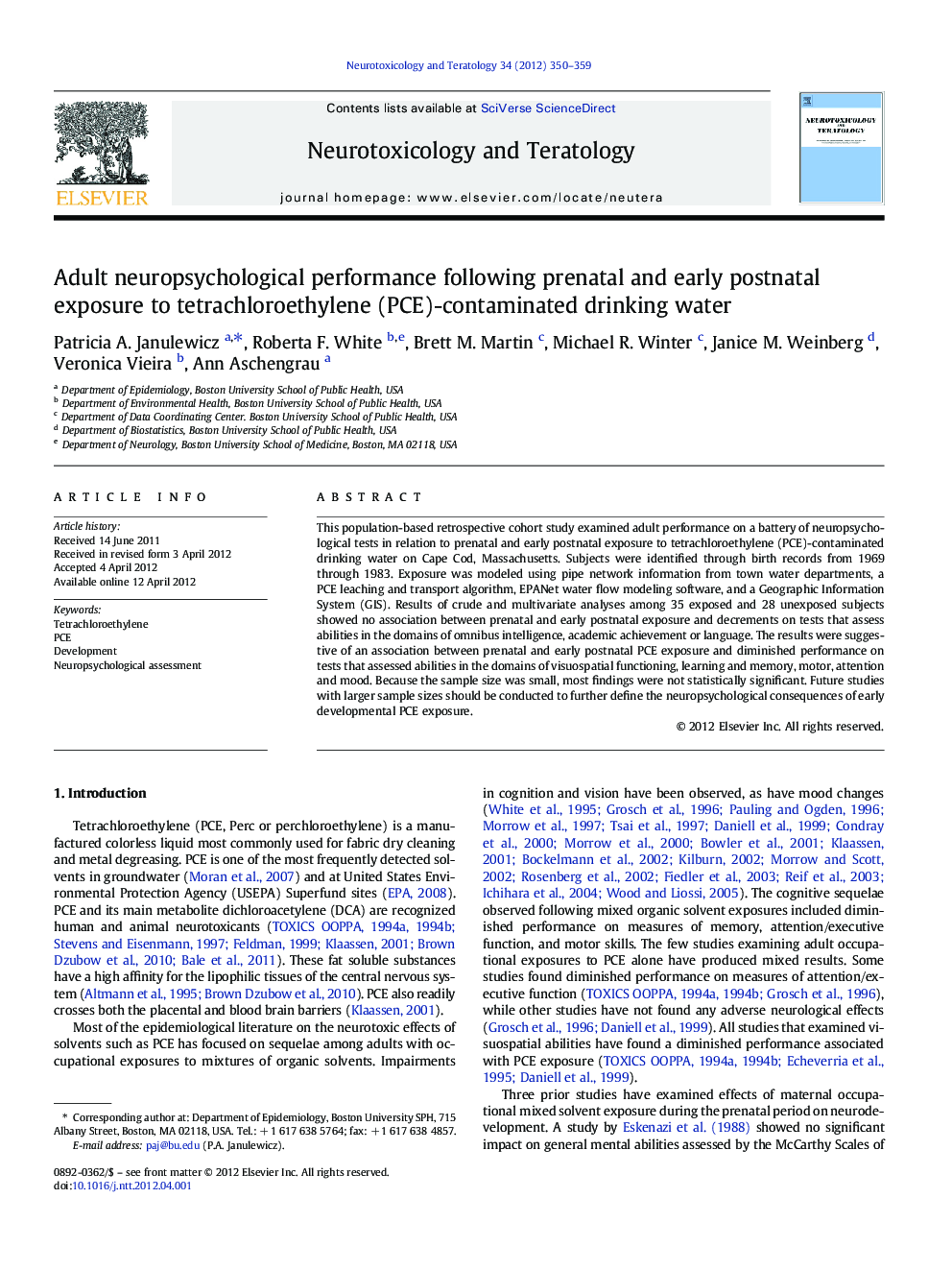| Article ID | Journal | Published Year | Pages | File Type |
|---|---|---|---|---|
| 2591228 | Neurotoxicology and Teratology | 2012 | 10 Pages |
This population-based retrospective cohort study examined adult performance on a battery of neuropsychological tests in relation to prenatal and early postnatal exposure to tetrachloroethylene (PCE)-contaminated drinking water on Cape Cod, Massachusetts. Subjects were identified through birth records from 1969 through 1983. Exposure was modeled using pipe network information from town water departments, a PCE leaching and transport algorithm, EPANet water flow modeling software, and a Geographic Information System (GIS). Results of crude and multivariate analyses among 35 exposed and 28 unexposed subjects showed no association between prenatal and early postnatal exposure and decrements on tests that assess abilities in the domains of omnibus intelligence, academic achievement or language. The results were suggestive of an association between prenatal and early postnatal PCE exposure and diminished performance on tests that assessed abilities in the domains of visuospatial functioning, learning and memory, motor, attention and mood. Because the sample size was small, most findings were not statistically significant. Future studies with larger sample sizes should be conducted to further define the neuropsychological consequences of early developmental PCE exposure.
